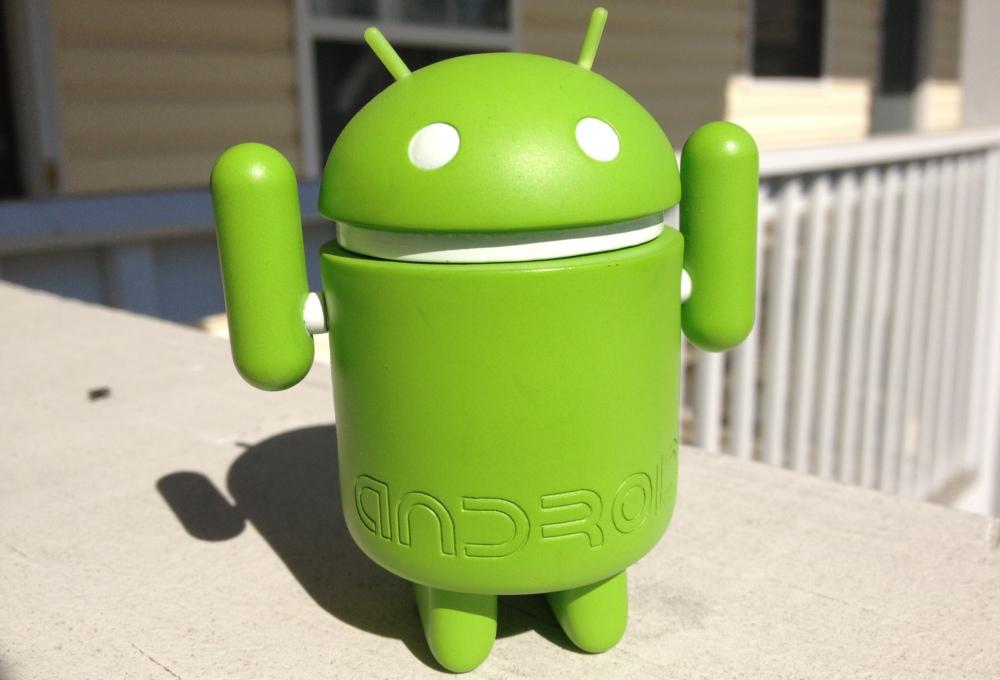
To date, many have viewed Android tablets as sort of a joke. In the midst of a slew of Android and Windows tablets, Apple's two different iPad models have been dominating the entire tablet market, almost effortlessly. Heading into 2011, Android tablets only had 29 percent of the market, and the vast majority of those tablets were lesser-known, cheap, low-end tablets. At the time, the original 7-inch Galaxy Tab was the only Android tablet that had received any real face time and exposure.
Last year was the first year that serious, high-end Android tablets reached consumer hands, and many – including myself – expected a much warmer welcome for the little green robot in the tablet market.
However, that's not quite how it went down. Of the numerous models from several different manufacturers, only a select few garnered a notable response from consumers and tech sites alike (i.e.: the ASUS Eee Pad Transformer, ASUS Transformer Prime and Samsung Galaxy Tab 10.1). That leaves a lot of high-end slabs neglected and collecting unsightly dust on retail shelves.
It has gone as far as some people calling Android tablets in 2011 a failure, though I wouldn't agree.
Earlier today, it was announced in a report from BusinessWire that Android tablets jumped from 29 percent in Q4 of 2010 to 39 percent in the same quarter last year. While this jump was at the sacrifice of Apple's market share (which fell from 68 to 58 percent), it wasn't a total victory. The increase is believed by TechCrunch's Robin Wauters to be largely due in part to Amazon's popular Kindle Fire, which certainly dilutes the success a bit, considering the Kindle Fire is strictly marketed as an "Amazon tablet" instead of an Android tablet.
Victory or no victory, this raises a rather big question – one very few of us though we would be asking so soon: can Android tablets match, or surpass, the iPad's tablet market share as early as end of year 2012?
Early last year, an analyst predicted that it would take Android tablets until 2014 to overtake the iPad in market share, which was a respectable claim. At the time, we had seen very little activity from major players in the Android tablet game. Since then, more and more OEMs have jumped on the bandwagon, bringing limited success with them. Back in May, although few agreed with me, I predicted that it would not take Android tablets until 2014 to capture the majority of the market share.
Now, we're facing much more growth than we had anticipated from Android in the tablet space and the possibility of Android overtaking tablet market share in the next 11 months – earlier than even I expected – is very real. Regardless of whether that's largely due to the Kindle Fire or not, it would be realistic to believe that as Android tablets gain substantially more attention with more models, better price tags, better specifications and more versatility (Transformer Prime with keyboard dock, as an example); thus, with more mind share and likely better deals than what Apple will offer with their iPad, comes more sales and market share for Android.
If things continue at the same pace (read: Android tablets gain 10 percent market share while Apple loses 10 percent), by the end of the year, Android tablets will match the iPad's market share with relative ease. If Android tablets pick up any pace at all, they can easily leapfrog Apple, which I'm sure would cause an uproar.
To be completely honest, though, it should come as no surprise.
Android handsets, too, got off to a very slow start and took over a year before getting any real exposure. The G1 launched in October of 2008, yet Android phones weren't truly on the map (I'm talking widely marketed and publicized) until the original DROID launched in November of 2009. There were certainly phones launched in between, but they lacked the strong marketing campaign, thus missed on sales. After that, there were a couple more major devices – like the Nexus One, EVO 4G and DROID X – that further launched Android into the limelight.
I wouldn't expect Android tablets to follow this exact trajectory, but something similar will probably take place. With the launch of a few high-end tablets, Android slabs could seriously take off at some point in the not too distant future. Call me crazy, and I could be completely wrong, but it's an easy assumption to make based on Android's history in other areas.
What say you? Can the little green bot overcome the iPad in 2012? Or will it take until 2014? Longer? Will it be better pricing that does it for Android in the tablet space?